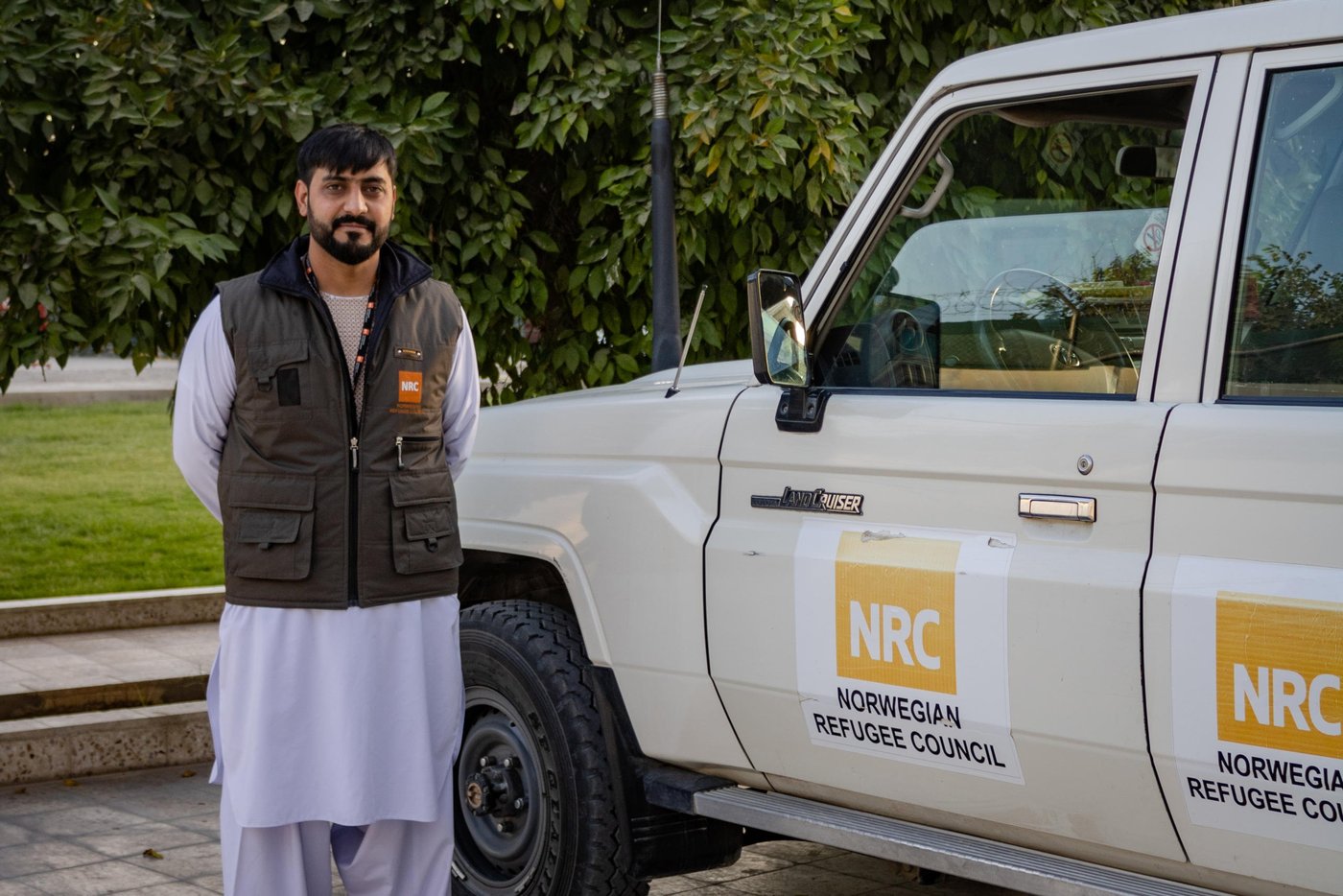“During the early 1990s, the situation in Afghanistan turned into chaos. There was conflict in every corner of the country,” says Noor.
The Soviet-Afghan war, which finally came to an end in 1989, had cost hundreds of thousands of lives and caused extensive damage. When the Soviets withdrew, it was unclear what would happen next in the war-torn country. A full-blown civil war ensued.
Amid the chaos, Noor’s father died. His mother was left alone with Noor and his siblings. She had no option but to flee with her children and seek refuge in neighbouring Pakistan. Noor was only three years old at the time.
“From what I remember, and from what my mum would sometimes talk about, the situation was so miserable. We spent at least one or two weeks crossing the border to arrive to Peshawar.”

The feeling of separation
The family found safety in Peshawar, Pakistan. But survival continued to be an uphill battle.
“The living conditions were hard for us there,” Noor recalls. “It was a new environment for us. Everything was new there. The overall social shift, we’d lost our income and resources – generally, handling the situation was hard.”
“There was this visible difference between our lives as refugees and the lives of local Pakistani people. Being a teenager, you don’t have an in-depth understanding of living conditions, rights etc., but I still remember now the way we struggled to get food.
“We spent many nights with only a cup of tea without sugar. I’m not fond of these memories. Now, as an adult, I keep wondering how difficult it must have been for my mother, my family, and other Afghans, and how difficult it continues to be.”
Noor remembers being treated as “different”, like he didn’t really belong. The school he attended was a school for refugee children, run by a humanitarian organisation.
“The school gave us a feeling of separation. I vividly remember the difference between myself and the Pakistani kids who would attend Pakistani schools. They were well organised and had uniforms, shiny shoes, good notebooks, etc. These were the things that a kid would love to have for school! But we were deprived of all that.”

Alienated from their own community
Noor’s family eventually returned to Afghanistan, about ten years after they first fled. The country felt changed. They felt changed.
“Acclimatising back to the new environment was difficult because of the social differences between us and the community in Afghanistan. Our perspectives were different. The country was in a post-conflict situation and people’s mindsets reflected that.”
He says it took years for his family to fully integrate back into their own community.
“We felt alienated from our own community, which was a strange feeling and difficult to cope with at times.”

Determined to help others
Noor now works as an Area Manager for the Norwegian Refugee Council (NRC) in Afghanistan, inspired by his own experience of being a refugee.
“I have so many memories of that time, which encouraged me to become a humanitarian and work in this sector,” he says.
Noor’s first job at NRC was in the education unit.
“I wanted to speak up and share my personal experience of how curriculums and teaching methods affect the mind of a child studying in primary school,” he recalls. “And also, of how the schools we attended did not have adequate services. For instance, the hygiene and sanitation facilities, the drinking water points, the recreational activity spaces were all lacking.”
“But more than anything, there were very few efforts at integration. There were these visible differences between the refugees and local people in terms of living conditions and education.
“I can’t remember any competitive programme or academic exchange visit to any of the Pakistani schools or universities that would encourage integration or understanding each other. There was nothing to help us refugee children find our place in Pakistan, or in our community in Afghanistan.
Noor recalls the unusual way his class was taught maths in Pakistan. He learnt to add and subtract using ammunition, rifles, grenades and knives as examples. “For instance, we had questions like: ‘If you have five rounds and you shoot four, how many are remaining?’”
“A child should be able to see themselves as an adult in their community, and should be able to set goals. There was no such thing at that time.”

Being heard at last
Noor’s story is currently featured in the UK’s Imperial War Museum North exhibition, Aid workers: Ethics under fire. He also appears in a short BBC Ideas film, Why do aid workers risk their lives to help others?, which was made about the exhibition.
Noor says that it is an honour to be recognised in this way. “It allows us to be heard and reflect the reality of how bad the war is. How it feels to be a refugee and what can be done to stop it,” he says.
“It is our collective duty to keep saving lives, and to listen to individuals and communities that feel neglected, or that have been displaced from their homes and are living in chaotic situations. We need to make sure their voices are heard.”
***
The Imperial War Museum North exhibition is open to the public until 26 September 2021.


